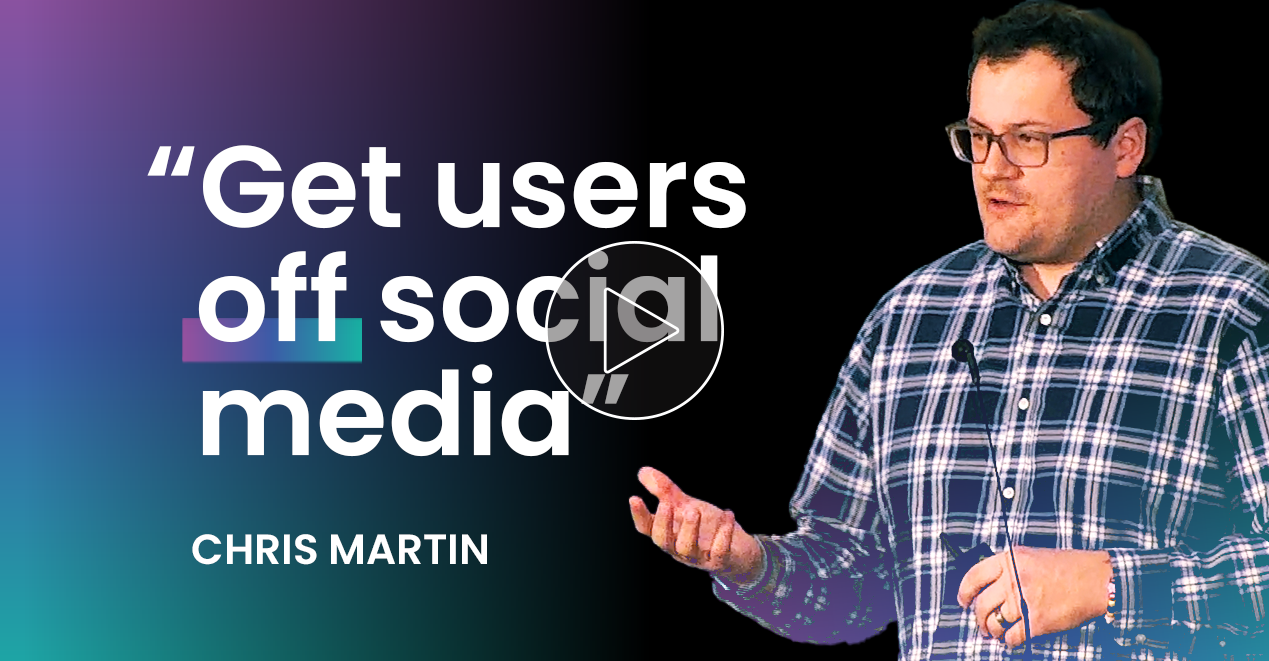5 Data-Driven Social Media Tips for Ministries
In today’s digital landscape, ministries and nonprofits must be intentional about how they engage their audience online. At the Digital Ministry Conference, Chris Martin with Moody Global led an insightful session titled “Using Data to Drive Your Social Media Strategy,” where he unpacked the power of data-driven decisions to create deeper, more meaningful connections.
Many organizations struggle with social media effectiveness, often measuring success by follower count or superficial engagement. However, Chris revealed that data—when used strategically—can help ministries better serve their audience, create impactful content, and build relationships beyond social media platforms. Below are five key takeaways from the session that can help your ministry maximize its social media efforts.
1. Focus on Engagement, Not Vanity Metrics
It’s easy to get caught up in the numbers—likes, views, and follower counts—but these don’t always indicate true impact. Instead, ministries should prioritize engagement metrics like watch time, shares, and meaningful interactions. These numbers reflect how well your content resonates with your audience and whether it’s fostering deeper connections. By focusing on engagement, ministries can ensure their content isn’t just seen but actually making a difference.
2. Use Data to Understand Audience Needs
Every post, comment, and interaction tells a story. Chris emphasized that data is communication—it reveals what your audience cares about and how they engage with your ministry. By tracking patterns in post performance, ministries can identify which topics generate the most interest and adjust their content strategy accordingly. Instead of guessing what your audience wants, let the data guide you to create more relevant, impactful messages.
3. Create Content Your Audience Actually Wants
A common mistake ministries make is creating content that they think is important rather than what their audience finds valuable. Chris advised leaders to analyze engagement trends and align their content with audience preferences. Ministries that meet their followers’ needs will build trust, encourage interaction, and increase their content’s effectiveness. Whether it’s video, blog posts, or interactive discussions, tailor your strategy to what truly resonates.
4. Move Your Audience Off Social Media for Deeper Relationships
Social media platforms are rented space—algorithms change, organic reach declines, and ministries have little control over who sees their content. That’s why Chris encouraged ministries to use social media as a front porch, leading people toward deeper engagement elsewhere. This means inviting followers to sign up for email lists, join private communities, or engage with ministry content outside of social media. Building relationships beyond the platform ensures lasting impact.
5. Build Depth Beyond the Algorithm—Email Lists Matter!
Chris highlighted that ministries can’t rely on platforms like Facebook or Instagram to maintain audience connections. Organic reach has significantly declined, often reaching only 1% of followers without paid promotion. To maintain direct communication, ministries should prioritize email lists and other owned media platforms where they control the message. Email allows for deeper, personal engagement—free from unpredictable algorithm changes.
The session at the Digital Ministry Conference underscored a vital truth: social media should be a tool, not the destination. Ministries that leverage data effectively will move beyond surface-level engagement and build long-term relationships with their audience. By focusing on engagement, listening to data, creating audience-centered content, and leading people off social platforms, ministries can strengthen their digital impact.
Watch the full session recording for deeper insights and practical strategies.
P.S. Subscribe to the Five Q YouTube channel to catch all session recordings as they’re released!
